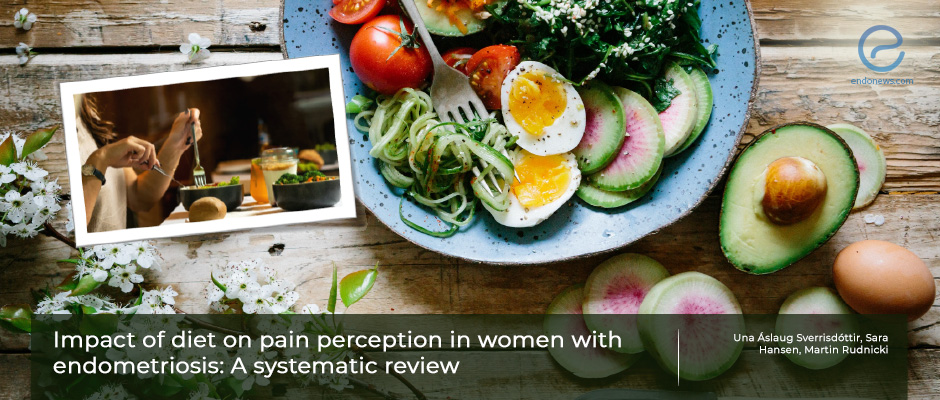Is it possible to reduce pain by diet in endometriosis?
Aug 8, 2022
Studies show the pain perception in endometriosis might be improved by applying different diets
Key Points
Highlight:
- Dietary changes may help patients with endometriosis reduce pain perception via regulating inflammatory mediators.
Importance:
- The pain that patients with endometriosis feel might significantly affect their quality of life.
- Applying different diets makes it possible to take some of the burdens of pain.
What’s done here:
- This is a review study that aimed to investigate the studies that were performed to show the effects of dietary changes on pain perception in women with endometriosis.
- A thorough database search was performed, the studies were eliminated depending on strict inclusion criteria, and six studies were included.
Key results:
- The positive effect of a high intake of Omega-3 polyunsaturated fatty acids was shown by two studies in improving pain perception.
- A low FODMAP diet was demonstrated to cause a substantial reduction in bowel symptoms in patients with irritable bowel syndrome and endometriosis.
- The pain perception was also found to be improved with the administration of gluten-free and low-nickel diets.
Strength and Limitations:
- The study's strength is that despite the small patient populations and varying study methodologies, all studies included women with a laparoscopically confirmed diagnosis of endometriosis.
- The limitations include the duration of the studies included in this review and the outcome measurements between studies varying considerably.
Lay Summary
Endometriosis-related pain is one of the most common symptoms of endometriosis that significantly affects the patient's quality of life. The peripheral and central sensitization, caused by chronic inflammation activation, may result in referred pain.
The pain perception was shown to be decreased with dietary changes by some studies, including in patients with endometriosis. These changes include intake of Omega-3 polyunsaturated fatty acids (PUFAs), a low FODMAP diet, a Mediterranean diet, a gluten-free diet, and a low nickel diet.
Researchers from Denmark published a review study aiming to provide updated information about the effects of dietary changes on pain perception in women with endometriosis. The article was published in the April 2022 issue of the European Journal of Obstetrics and Gynecology.
Only studies that included women of reproductive age, laparoscopically confirmed diagnosis of endometriosis, intervention including any type of dietary change, and pain evaluation using a visual analog scale from 0 to 10 were taken into consideration. A database search revealed six studies after excluding those that did not meet the criteria.
The two studies that investigated the effect of high intake of PUFAs showed a significant improvement in pain perception in women with endometriosis. PUFAs were declared to this effect by regulating inflammatory mediators such as cytokines and prostaglandins. A study performed on women with irritable bowel syndrome, and endometriosis who were on a low FODMAP diet demonstrated a substantial reduction in bowel symptoms compared with women with irritable bowel syndrome alone. The studies on the effects of a gluten-free and low-nickel diet found that both diets helped improve pain perception.
The authors conclude that the available studies on the effects of dietary changes on pain perception in women with endometriosis show that they may reduce pain perception. However, most of these results come from non-randomized controlled trials. Further well-designed trials on this subject are required.
Research Source: https://pubmed.ncbi.nlm.nih.gov/35245715/
endometriosis diet pain pain perception omega-3 fatty acid inflammation mediterannean diet PUFA FODMAP IBS

